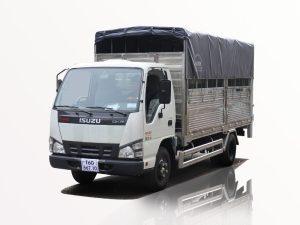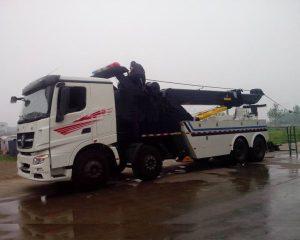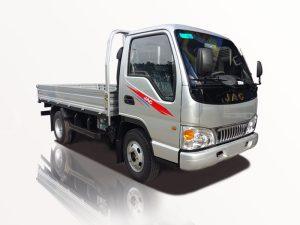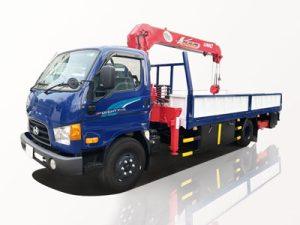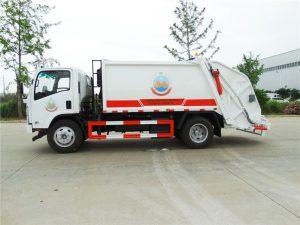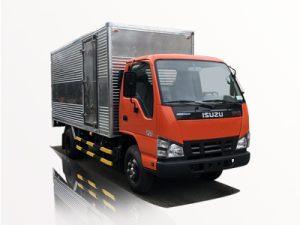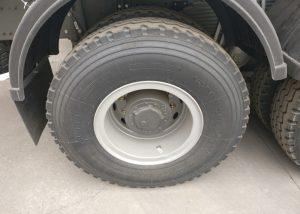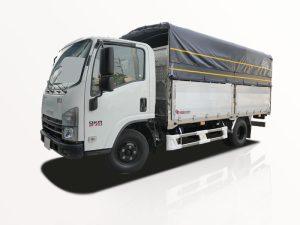Monday to Saturday - 8:00 -17:30
Understanding Plateau Truck & Tractor: Your Guide to Choosing the Right Equipment
In the world of agriculture and heavy machinery, plateau truck and tractor equipment play a crucial role in increasing productivity and efficiency on farms and construction sites. This comprehensive guide aims to explore all aspects of plateau trucks and tractors, helping you make informed decisions about purchasing, operating, and maintaining these essential tools.
What is a Plateau Truck & Tractor?
A plateau truck and tractor is a specialized vehicle designed for use in agricultural or industrial applications. These machines are often characterized by their flatbed design, which allows them to transport materials such as crops, equipment, or supplies across various terrains.
Key Features of Plateau Trucks and Tractors
- Flatbed Design: The open cargo area is ideal for transporting goods of different shapes and sizes.
- Heavy-Duty Capacity: Designed to carry substantial loads, making them suitable for long-distance travel.
- All-Terrain Capability: Equipped to handle a variety of landscapes, including rugged terrains and uneven surfaces.
- Powerful Engine Options: Typically equipped with powerful engines capable of towing and hauling heavy loads.
Benefits of Using Plateau Trucks & Tractors
Utilizing plateau trucks and tractors offers various advantages, particularly for agricultural and construction industries.
Increased Efficiency
These vehicles can significantly reduce the time it takes to transport materials, allowing for smoother operations on job sites or farms.
Cost Effectiveness
Investing in plateau trucks and tractors can decrease labor costs as a single operator can move heavier loads compared to traditional methods.
Versatility
Plateau trucks and tractors can serve multiple functions: transporting goods, towing equipment, and even aiding in plowing fields or clearing debris.
Types of Plateau Trucks & Tractors
There are several types of plateau trucks and tractors, each designed for specific applications and environments.
1. Agricultural Plateau Trucks
Designed for farm use, these trucks are perfect for moving produce and equipment between fields.
2. Construction Plateau Trucks
Built to withstand tough environments, these trucks are commonly used to transport construction materials and equipment.
3. Off-Road Plateau Trucks
These vehicles have enhanced features for better handling in difficult terrains, making them suitable for forestry or mining operations.
Specifications Comparison Table
| Type | Load Capacity | Terrain Suitability | Typical Usage |
|---|---|---|---|
| Agricultural Plateau Truck | 10,000 lbs | Farm Fields | Transport Crops |
| Construction Plateau Truck | 20,000 lbs | Construction Sites | Material Transport |
| Off-Road Plateau Truck | 15,000 lbs | Rugged Terrain | Forestry Operations |
Choosing the Right Plateau Truck & Tractor
Selecting the appropriate plateau truck and tractor can be a daunting task. Consider these factors to make an informed decision:
1. Assess Your Needs
Consider what kind of loads you frequently transport and the typical terrains you’ll encounter. This assessment will help you narrow down your options.
2. Evaluate Engine Power
Ensure that the engine provides ample power to handle your loads efficiently. Look for specifications that indicate horsepower and torque ratings.
3. Check Fuel Efficiency
Fuel costs can add up quickly; thus, it’s essential to find a model that offers good fuel efficiency without sacrificing performance.
4. Look for Features
Additional features such as safety mechanisms, adjustable beds, or modern technology for tracking can also influence your choice.
Operating and Maintaining Your Plateau Truck & Tractor
Proper operation and maintenance are vital for ensuring the longevity and performance of your plateau trucks and tractors.
1. Regular Inspections
Conduct inspections before and after use, checking for any damage, fluid leaks, or wear and tear.
2. Maintenance Schedule
- Change the oil regularly.
- Inspect and replace filters.
- Check and inflate tires to the proper pressure.
3. Safe Operation Practices
Always follow safety protocols while operating heavy machinery, including wearing seat belts and ensuring load stability.
Practical Examples of Plateau Truck & Tractor Applications
Understanding practical applications can help you visualize how plateau trucks and tractors fit into your tasks.
Agriculture
Farmers utilize plateau trucks to transport harvested crops from fields to storage facilities, optimizing the process to prevent spoilage.
Construction
In construction, plateau trucks are used to haul heavy materials like steel beams or concrete, minimizing the number of trips required.
Forestry
Loggers rely on durable plateau trucks to transport logs from remote forested areas to processing centers efficiently.
Common Challenges and How to Overcome Them
1. Sticking to Budgets
Conduct thorough market research to find the best deals while assessing long-term operational costs.
2. Terrain Limitations
Choose machines designed for specific terrains and consider additional attachments if necessary.
3. Downtime Due to Repairs
Establish an emergency fund for repairs and ensure you have access to quality replacement parts.
Frequently Asked Questions (FAQs)
1. What is the ideal load capacity for a plateau truck?
The ideal load capacity depends on your specific needs, but many models range from 10,000 lbs to 20,000 lbs.
2. How can I improve the fuel efficiency of my plateau truck?
Regular maintenance, proper tire inflation, and driving at consistent speeds can all enhance fuel efficiency.
3. How often should I service my plateau tractor?
It is recommended to service your plateau tractor every 100 hours of operation or at least once a year.
4. What type of attachments can I add to my plateau tractor?
Common attachments include plows, trailers, and seeders, which can increase your tractor’s versatility.
5. Are there any financing options available for purchasing plateau trucks?
Many dealerships and banks offer financing plans to help you make your purchase more manageable.
6. How can I learn to operate a plateau tractor safely?
Formal training programs are often available through local agricultural extension offices or community colleges.


